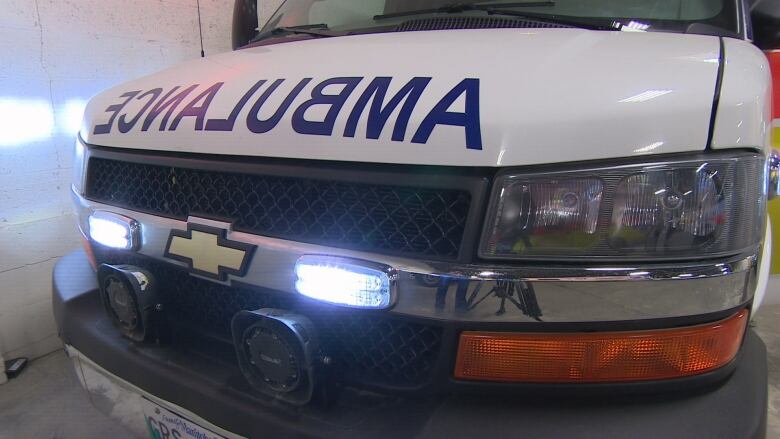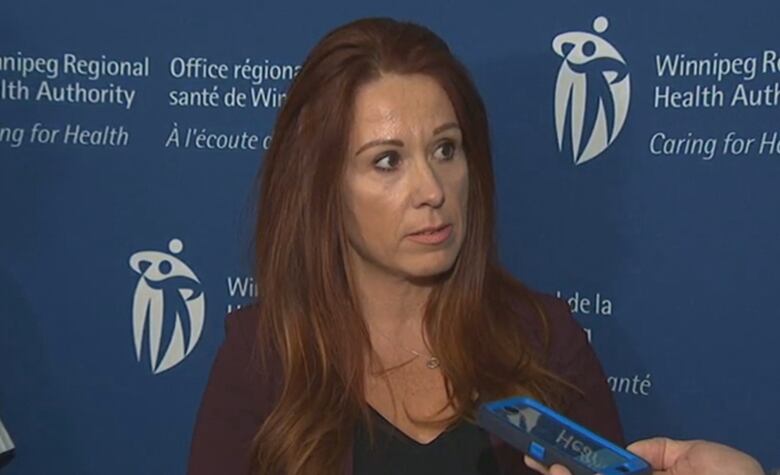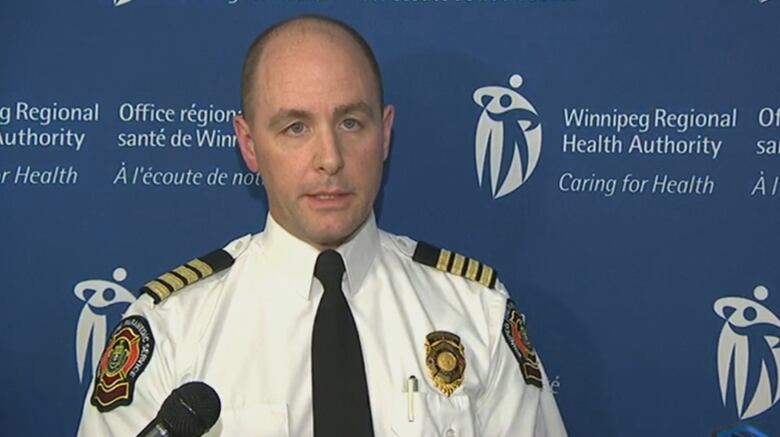Changes to patient drop-off at Winnipeg hospitals will get ambulance crews back on the road faster: WRHA
Changes will see paramedic crews spend an additional 8,000 hours on the streets every year, says WRHA

Upcoming changes to how paramedics drop patients off at Winnipeg hospitals will see ambulance crews spend an additional 8,000 hours on the roads every year, says the Winnipeg Regional Health Authority.
Under the plan, announced Thursday by the WRHAand the Winnipeg Fire Paramedic Service, hospital staff will take over care of patients no later than45 minutes after they're brought tohospital by ambulance, freeing up paramedics to go back into service.
Currently, paramedics stay with patientsuntil the transfer of care is complete, which on average takes a little more than one hour per patient, explained Krista Williams, chief health operations officer with the WRHA.

Williams says under the new plan, which comes into effect April 11, doctors, nurses and other hospital staff will work together to take over care at thecut-off point.
"It requires the whole hospital to support the effective transfer of care," said Williams. "Everyone is engaged to look at how they can all work together to support the needs of the emergency room patients and those that are coming in by [emergency medical services]."
The WRHA's current goal of transferring care within 30 minutes is still the standard everyone will aim for, noted Williams.
And in the cases of surges in the emergency department, Williams said "resource pools" of staff will be made available to help ER staff if the 45-minute target is at risk of being missed.
Fees no longer paid to city
The new protocols will also mean the City of Winnipeg will no longer receive compensation from the health authority that previously covered the costs of Winnipeg Fire Paramedic Servicestaff waitingto transfer patients into care.
The WRHA spent an average of around $95,000 per month in transfer-of-care fees in 2015, and roughly $61,000 monthly in 2016, said Williams.
Late last year, Winnipeg Mayor Brian Bowman said the city would be left covering more of the costs of operating ambulances after the province froze its funding for theservice.
Council finance chair Scott Gillingham said Winnipeg ought to stop operating ambulances and hand over responsibility for theservice to the province.
And John Lane, the chief of the WFPS, said the health authority needed to provide the city withmore money or specify which ambulance services to cut.
On Thursday, Christian Schmidt, deputy chief with the WFPS, said the service wasworking with theWRHAand local hospitals to get ready for the drop-off changes. As well, he said,emergency rooms have been equipped with equipment to notify the service's communication centre as soon as ambulance staff are freed up.

"At that moment that notification is made, our dispatchers are aware that that unit is available to respond," he said.
"The ambulances in this community, everybody agrees, are ahighly valued resource and we need to have them out response ready on the streets of Winnipeg."
'Reckless' plan: Nurses union
Manitoba Nurses Union president Sandi Mowatsaid the changes will only put more pressure on nurses and other professionals at understaffed hospitals.
"The WRHA's plan to require paramedics to offload patients from ambulances into emergency rooms in less than 45 minutes is reckless and will put patient care at greater risk," she said in statement.
"To allow for a situation in which our most vulnerable patients could be left alone in emergency rooms due to an arbitrary time limit is frankly disturbing and fundamentally contrary to our values to put patient safety first," Mowat said.
"Asking nurses, physicians and other health care workers to rush through patient care procedures is unacceptable and not conducive to improving health care outcomes."












_(720p).jpg)


 OFFICIAL HD MUSIC VIDEO.jpg)
.jpg)



























































































